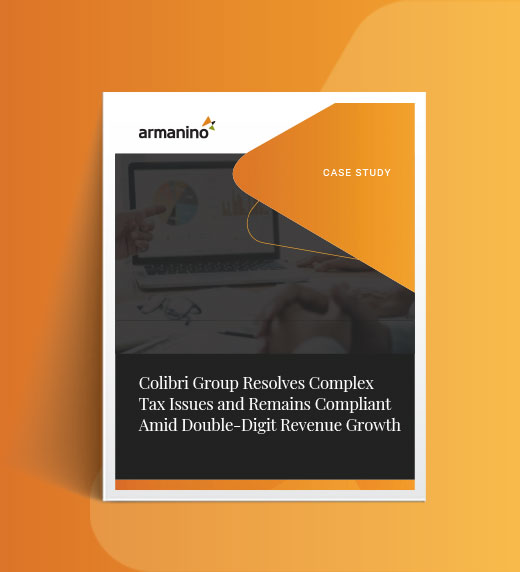Tax compliance issues can complicate your business as you expand into new locations. Not understanding your state and
local tax (SALT) obligations in each jurisdiction may raise your tax bill considerably and/or open you up to potential
tax exposure, including penalties and interest. These seven questions will help you identify SALT reporting and
compliance gaps and determine where you may need to address outstanding issues.
-
1. How do you source sales among the states (are you using your customer’s billing address)
Many states use market-based sourcing, but due to statutory variations, the proper application of these provisions may
differ by state. Businesses often use billing address to source revenue, but this is not consistent with state
market-based sourcing requirements because a billing address often does not accurately represent where the customer
receives the benefit of the services. Sourcing sales for income tax purposes is complicated, and the slightest nuance in
the statutory language can make a material difference in your company’s tax liability. Failure to apply these provisions
correctly may result in overpayment or underpayment of income tax in various states.
-
2. Are you using the same apportionment methodology to source sales in all states?
States vary widely in terms of revenue sourcing requirements. Some states apply market-based sourcing, while others
source revenue based on the location(s) of the costs incurred to generate such revenue. Businesses must evaluate their
sourcing methodology separately in each state because it’s likely the methodology varies across state lines. Reviewing
your revenue sourcing methodologies may help your business mitigate tax exposure or even generate tax refunds.
-
3. Are you apportioning 100% of your sales, and if so, should you be?
State and local revenue sourcing laws vary by state, and it is not uncommon for the interplay between state tax laws
(especially state sourcing methodologies) to result in the taxation of less than 100% of your income among the states.
Careful review and application of these provisions may create material benefit for your business.
-
4. Are you making sales outside the state in which your company is located?
Even if you do not have a location or employees in a particular state, you may still have an income tax filing
obligation. Physical presence is no longer required for a state to impose income tax on businesses. Simply deriving
revenue from the state may be enough. It is important to carefully review each state’s revenue sourcing requirements to
accurately determine whether your business has economic nexus in a state, which triggers incremental state income tax
filing obligations you may not be aware of. Failure to file income tax returns in such states may create material income
tax exposures that will continue to accrue in perpetuity since there is no statute of limitations on the state’s ability
to assess income tax if the business never files an income tax return.
-
5. Do you have sales over $100,000 and/or more than 200 sales transactions in any state?
The state and local sales tax thresholds vary by state, as does the measure for triggering
these thresholds. However, since the U.S. Supreme Court’s seminal 2018 South Dakota v. Wayfair decision, every state
that has a sales tax has enacted an economic nexus provision. Many use a combination like the sales and transaction
thresholds noted above, which were modeled after the South Dakota statute at issue in the Wayfair case. If your business
meets these thresholds, you should evaluate the taxability of your product to determine whether you have a sales tax
collection and remittance responsibility in one or more states.
-
6. Is your product taxable in the state or locality in which you do business?
The taxability of products and services varies by state. This may create situations where your business falls within a
specific category of taxable services in one state and a completely different non-taxable category in another state.
Separately, the state may have provisions that exempt some of your sales and/or tax them only at the local level.
-
7. If your product is taxable, are you compliant with the state and local sales tax requirements?
If your business meets a state’s nexus threshold and you fail to collect and remit sales tax on your taxable sales, you
could end up paying the tax bill for your customers. Typically, the seller passes the sales tax to its customers.
However, sellers that do not collect the tax from customers are on the hook for the uncollected sales tax plus penalties
and interest.
All States Are Not Created Equal
Many local taxes are similar across municipality and state lines, but there are some areas with unique regulations that
could impact how your company does business. For example, Washington state does not have an income tax. Instead, you pay
the business and occupation (B&O) tax on your gross receipts. Though many Washington businesses fall under the 1.5%
gross receipts tax rate, some categories vary, and this can get tricky if you need to file in multiple categories.
There are also rules that are unique at the state and city level. Home rule states grant autonomy to localities to apply
sales tax separately from the state. For example, while software as a service is not taxable at the state level in
Colorado, it is in certain cities within Colorado.
Moving Forward
The many variations and tricky nuances in SALT compliance create a high probability of missing something crucial. If you
were unable to answer any of these questions or were not comfortable with your responses, it may be time to bring in a
SALT expert to provide clarity and help your business continue to thrive while remaining compliant.
Our SALT team can help you address the tax matters you see and those you don’t even know to look for. Contact our SALT
experts for more information on how to close your tax compliance gaps and take control of your operations.



